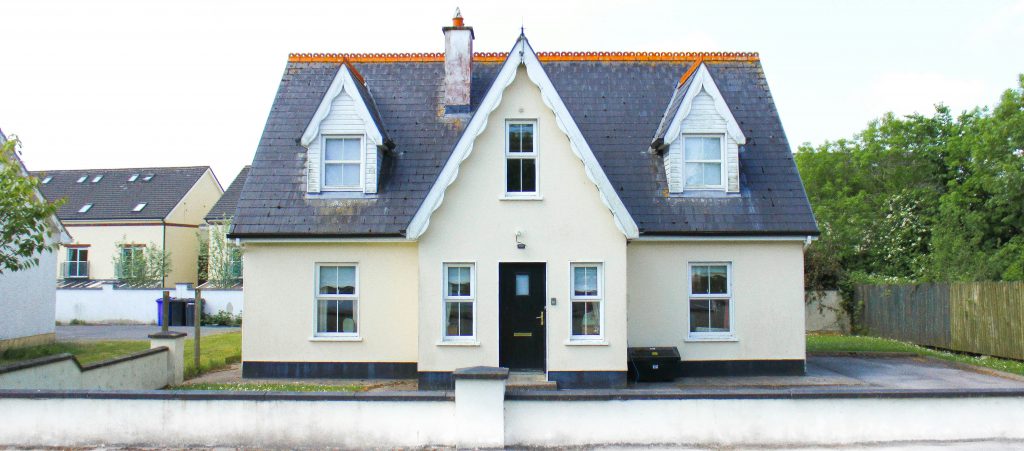If you’re planning to cruise full-time at some point you’ll probably wonder if you should sell your personal residence or not. There are different thoughts on this, I’ll happily share mine.
Let’s start with an important distinction.
Real estate is an appreciating asset (yes I know what happened in 2007, but is the only time since they have been keeping real estate records that prices dropped so dramatically and for so long). A boat is a depreciating asset. In English, the value of your real estate will likely go up, up, up. The value of your boat will go down. So for that reason, you should strongly consider not selling your real estate.

You say “But Captain, I have no desire to return to that house after cruising.” Maybe not, but once done cruising, you could sell that one and buy a house wherever you want to be, all the while it was (probably) increasing in value. Oh, wait, what’s that? You plan to cruise for the rest of your life? Awesome! What if you change your mind? I mean, I know you won’t, but what if you do? What if living on a boat eventually becomes something you no longer want? What if your health declines enough that living on a boat is no longer practical? It happens. If you own real estate, you have a “savings account”. Oh, you’re going to sell your boat and that is your savings account? (please see the previous paragraph).
If you don’t sell your house, what do you do with it?
With rare exceptions, you will be better off renting it out, (and please do not rent it to your family)*! How do you manage your rental while you are away? You won’t. You don’t want to try to manage the property from far away on your boat. It’s more complicated than you think it is. You’ll hire a competent property manager. How do you do that? Send me a message through this site and I will help you. Seriously. I have owned over 50 rental properties and I spent 15 years as a licensed real estate agent and I love helping cruisers almost as much as I love talking about real estate, so everyone will win!

Did your mortgage require you to live in the house?
Good news! Unless you have a reverse mortgage (we’ll talk more about that later) or down payment assistance, even if you got the kind of mortgage that requires you to live in the home, that requirement only lasts one year… after one year, you are allowed to turn the property into a rental property without changing your mortgage. You will want to change your homeowners insurance policy to a landlord policy, but that’s it.
Can you afford both the boat and the house?
If you have owned the house for a few years, and you start renting it out, most likely it will collect more rent than your expenses. Ideally, the amount of rent, will be at least 125% of any mortgage, taxes, insurance & HOA fees, so that you have enough to cover management fees, repairs, and maintenance.**
What is a reverse mortgage and what does that have to do with any of this?
A reverse mortgage is a special mortgage only available to people 62 or older. It does not require any monthly mortgage payments, and in some cases, it will even loan you money that you don’t have to pay back until you move out of the house (usually because you die). If you have a reverse mortgage today, you cannot move your of your house and onto your boat, without paying that mortgage off. If you do not have a way to refinance into a traditional mortgage or pay off the mortgage, then you may have to sell the house.
But here is the best part in my humble opinion. My wife and I are in our 50’s and currently plan to move onto a boat in the next 12-18 months and live the rest of our lives on the water. But what if we’re wrong? What if 10 years go by and we are no longer interested in living on a boat? Or what if our health won’t allow it? i.e. bad knees, bad hip, etc. We can call the company managing our property, and tell them not to renew the lease of the tenants currently living in the house we did not sell.*** Once the tenants are out and we move back in, (as long as we have reached 62 and have enough equity because the value continues to go up, up, up) then we can get a reverse mortgage and live in our home without a monthly mortgage payment. ****
If we do manage to live our last years on the water, our kids will inherit the house and they can decide whether they want to get a passive income from the rental or if they want to sell the property and cash out.

Now, however, there’s another potential issue: getting insurance on your boat.
Check with your insurance agent and ask if owning a house will make a difference in getting boat insurance. And ask if it has to be your primary home or if it can be a rental. Do not lie about whether the boat is your primary home. Lying on an insurance application can void insurance coverage – and will be something that the insurance company looks at if you ever make a claim. However, more and more people are discovering that they have an easier time finding insurance, or more at least more options, when they own residential real estate.
I’ve heard that some big insurance companies will not write boat policies if you do not also have a land residence. Underwriting rules constantly change and I am in no way an insurance broker or expert, so do your own research, but it’s one more thing to check into when deciding to go live on a boat.
Caution:
If you decide to sell, and can possibly afford it, please wait until you’ve been cruising at least a full year before you sell the house and everything in it. This will give you time to ensure that you’re really willing to live a cruising lifestyle. The first year will be a huge learning curve and knowing that you haven’t made an irreversible decision can really decrease the stress.
Also, if you decide to sell, and want my free handy guide to hiring the right real estate agent (remember, I have a significant real estate background) just contact me.
Also be sure to investigate boat insurance before making an offer. Every year, insurance underwriters get more and more strict. Do not assume you’ll be able to get insurance, even if you have tons of experience. I don’t want to dissuade you at all, I just want you to have your eyes wide open.
Fair Winds
Captain Jeff Vegas
Watch video testimonials for Captain Jeff Vegas by clicking this link
* – Unfortunately the most common tenant in the U.S. to stop paying the rent are people related to the landlord. I know, your family is different, right? You’re an adult. Make your own decision. Trust me it’s a bad idea.
** – Be careful to not try to charge more rent just so it will cover your costs. Tenants will pay whatever the market bears, but they will not pay more because you ‘need’ more. They will simply rent some other house. Let your professional property manager determine the rental rate.
*** – We cannot force the tenants to move out before the lease term ends, but we have no obligation to renew their lease.
**** – We will still have to pay property taxes, insurance, and HOA dues, and maintain the property, but we will have no principal or interest payments due for a mortgage.
 Terms of Use
Terms of Use
Leave a Reply